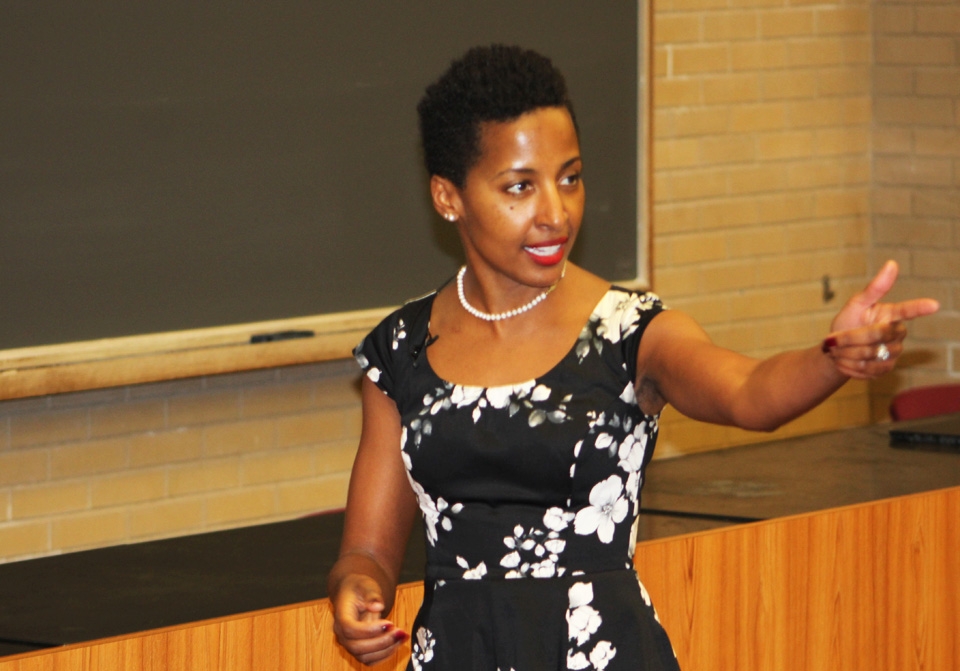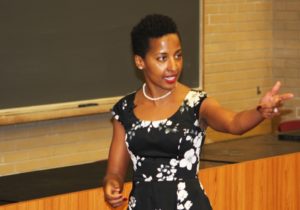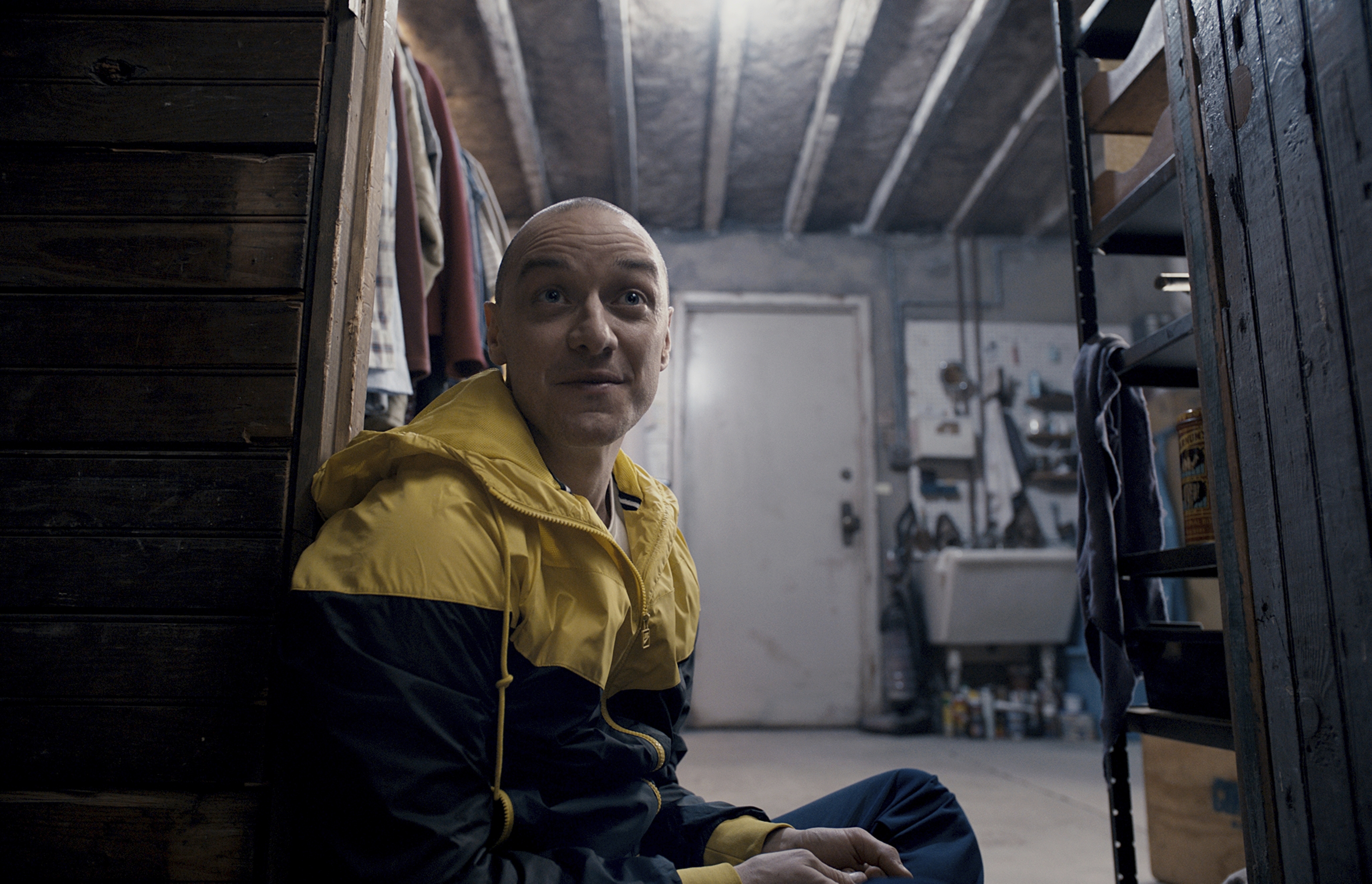
Ayana Ledford gives a lecture on women in science in Mellon Hall Nov. 16.

Ayana Ledford gives a lecture on women in science in Mellon Hall Nov. 16.
Megan Garrett | Staff Writer
On Nov. 15 in Mellon Hall, Duquesne hosted a lecture aimed at fighting the wage gap between men and women by equipping women with tools to negotiate for higher wages.
Ayana Ledford, executive director of the Program for Research and Outreach on Gender Equity in Society at Carnegie Mellon University, held a discussion on the differing viewpoints men and women have on negotiation, and offered women some tips of the trade.
“Research has found that by not negotiating, you leave a lot on the table,” Ledford said.
Through her lecture, “Dollars and Sense: The Value of Asking for What You Want,” she highlighted some explanations for the wage gap and the “glass ceiling” which exists for women in the workplace. The “glass ceiling” refers to the idea that women can only advance so high in an organization before being stopped.
For instance, it is no secret that discrimination happens: it happens to many groups of people, including women, Ledford said.
She said anxiety and fear of hearing “no” are often reasons women will settle rather than try to can gain from more from a situation. Ledford assured the audience that hearing “no” is absolutely okay. It simply means you tried, she said. Ledford suggested that women consider what they are worth individually. The only person who can determine what you are worth is yourself, she said.
Unfortunately, Ledford pointed out, women sometimes come to undervalue themselves, which is something women need to be aware of when they approach wage negotiations.
Ledford supported her argument by repeating a quote from organizational psychologist Lisa Barron: “I determine my own worth and it is up to me to make sure that my company pays me what I’m worth.”
A group of men and women were asked if they agreed. 85 percent of men agreed with the statement while only 17 percent of women felt the same.
Alyson O’Donnell, assistant professor in the department of biological sciences at Bayer School of Natural and Environmental Science, played a key role in the Women in Science forum. One day over coffee, O’Donnell turned to her colleagues and asked “How come we don’t have a program for women here?” With that, the project was set into motion.
O’Donnell said women are especially underrepresented in the field of science.
“Even in fields of science, like biology, where there tend to be high numbers of women obtaining bachelor’s degrees, when you look at upper level positions like tenure-track faculty, there are still fewer women than men. What happens to these women along their career paths that results in fewer women in these top positions?”
Nursing is thought of as a predominantly female run career, but when a man decides to be a nurse, he will be paid more, she said.
This unconscious bias, shared by men and women, that women are of a lesser value is systemic and a product of our society, O’Donnell added.
This event is just one of many to come, she said. Conquering outdated viewpoints is a sizable task, but O’Donnell said she is an instigator and will not shy away from the problem.
For being a fairly new program, there was a good turnout on Tuesday, with roughly 60 people were in attendance, including a few men. The program is for anyone who wants to find balance in their career path and their life, regardless of gender or what field you are pursuing, she said.
Anyone interested in attending future events can email WIS@duq.edu.




